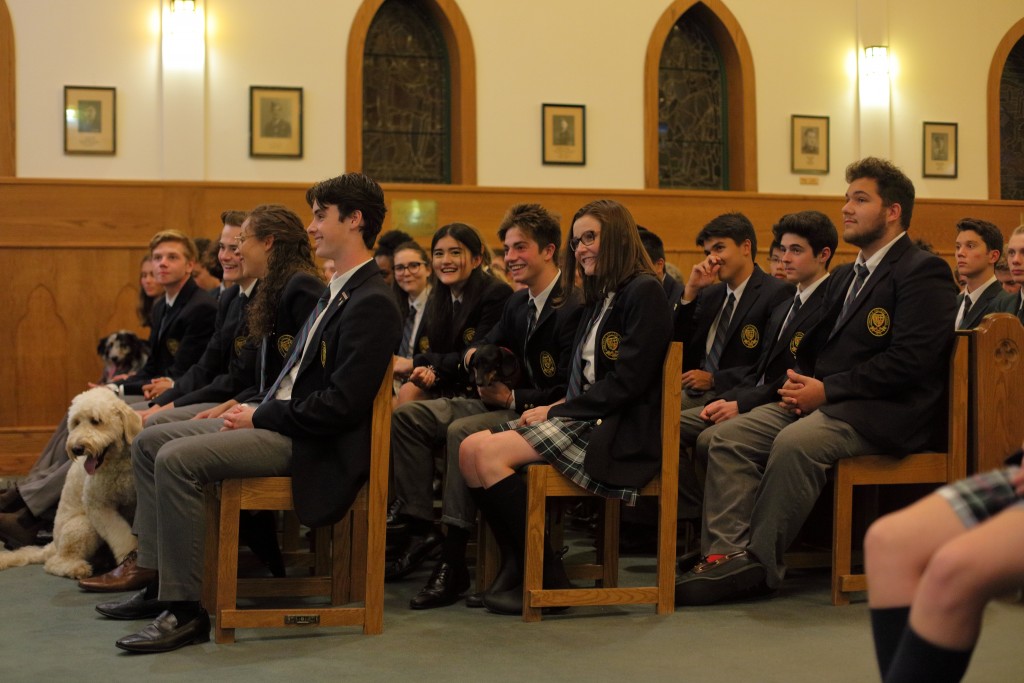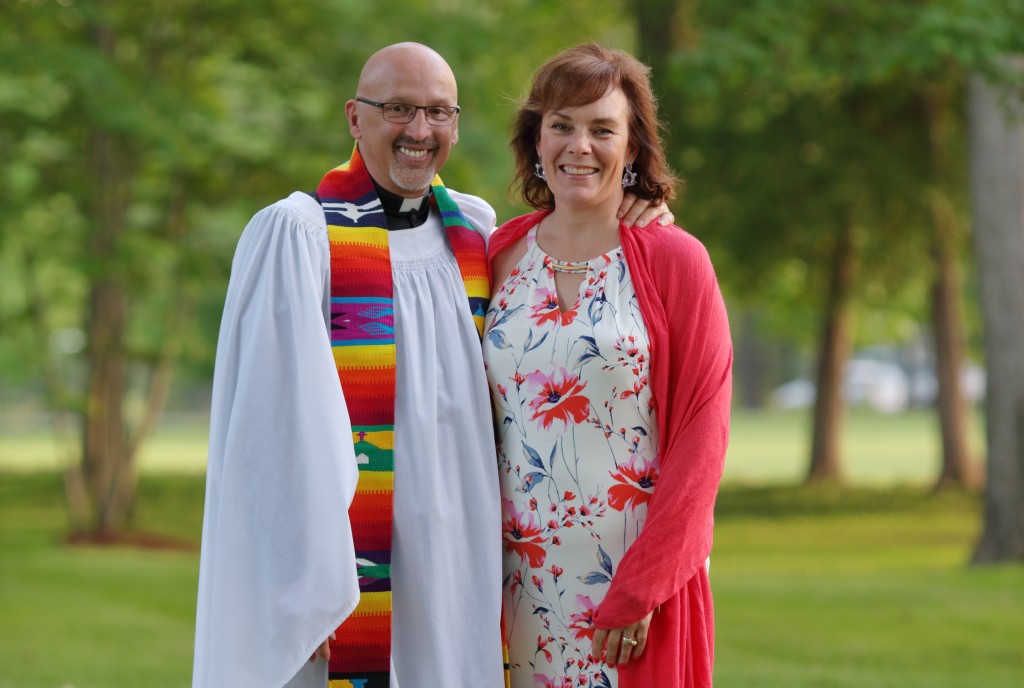By Lorraine Brown, Director of Spiritual Wellness and Diversity

This is my second year in the newly created role of Director of Spiritual Wellness and Diversity. If you were to ask our students who I am you might hear, “She’s the Chapel Lady,” or “She teaches AP Lit,” or “She says good morning to us in Chapel.” All of those statements are true. I am in Chapel each morning and I greet our community as they enter and exit the Chapel. I coordinate the programming of chapel and I also teach English courses as well as Spanish. I love our chapel, I have since I started working at LCS in 2003. It is a sacred space. You can feel how different it is from the other spaces in our community. And it’s not just the architecture that sets it apart (although it is a beautifully constructed space), it is the memories that it holds. The photos of the LCS boys and staff who died in the great wars adorn the walls. The brass commemorative plaques, the stately organ, and the stained-glass windows all carry stories. When we enter the chapel, we are welcomed into a community and we respond in kind by intentionally crafting stories that connect us to one another and provide for us more solid ground upon which to enter our school day.

One of the distinguishing features of the Chapel program is our chapel talks. There are few CAIS schools who have chapel talks and we are the only CAIS school who “does” chapel talks in the way that we do; our seniors are provided with the opportunity to craft 8 – 10 minute speeches in which they address the defining moments of their life and how these moments have shaped their identity.
This year, for example, there are 58 chapel talks scheduled. Our first chapel talk was on October 19 – the earliest in the history of chapel talks at LCS. At a time in education when we hear that teens are more stressed than ever, the fact that 58 seniors have chosen to do a chapel talk (for it is completely voluntary), is amazing. Each person who chooses to do a chapel talk takes a slightly different approach about how they wish to communicate their central message.
Their central message is, often, deeply personal and many share their rough draft with me, fearful that it is not good enough. A consistent pattern that I have witnessed is how often our students believe that their writing is not good enough, that what they have to say isn’t good enough. Sometimes, students come to me and say that they feel like they don’t have enough life experience yet to have something important to say, or that they are not sure if they even have a message. Shame and Vulnerability researcher, Brenee Brown, says that “vulnerability is the first thing we look for in others and the last thing we wish to show.” One of Brown’s ideas that I quote most often to our seniors is “it takes great courage to be vulnerable.” I encourage them to be vulnerable and to share a story that really matters to them.
I approach the drafts they share with me with a strength-based lens. I focus on what is working and what has real power, and what has possible connections for our community. Co-authors, Buckingham and Goodall in “The Feedback Fallacy” (Harvard Business Review), reinforced that a strength-based feedback approach is the way to go. They say: “neurological science … shows what happens to us when other people focus on what’s working within us instead of remediating what isn’t.” Based on my experience with chapel talks, students learn a great deal about who they are and what and who has shaped their identity. I have witnessed amazing progress in the writing of a chapel talk. Seniors have many “a-ha” moments, where the pieces of a puzzle start to come together, where they tell me a story (that is not in the chapel talk) that illuminates why they think the way they do. I had an a-ha moment when I read this in the Buckingham/Goodall article:
“Learning happens when we see how we might do something better by adding some new nuance or expansion to our own understanding. Learning rests on our grasp of what we’re doing well, not on what we’re doing poorly, and certainly not on someone else’s sense of what we’re doing poorly. And second, that we learn most when someone else pays attention to what’s working within us and asks us to cultivate it intelligently.”
They go on to say, “We’re often told that the key to learning is to get out of our comfort zones, but these findings contradict that particular chestnut: Take us very far out of our comfort zones, and our brains stop paying attention to anything other than surviving the experience. It’s clear that we learn most in our comfort zones, because that’s where our neural pathways are most concentrated. It’s where we’re most open to possibility, most creative, insightful, and productive. That’s where feedback must meet us—in our moments of flow.” I see these very ideas living and breathing in front of me when I review a chapel talk with a senior. I listen closely to what they say and also to what they’re not saying. I ask lots of questions. I ask for more examples. I ask them to think about their audience and whether their message will resonate for our Grade 9s. When they come to their “shout-outs” or what I like to call, gratitude statements, I encourage our students to speak in their home languages, their “love” language when they are addressing their parents and siblings. I want them to feel like it’s more than just ok to be who they are; I want them to know that we celebrate their uniqueness.
From what I have witnessed, positive coaching helps our seniors be more open to take risks and speak from the heart. Many seniors in their chapel talks advise our students to “get out of their comfort zone” because that’s where the most fun, the most memories are made. To take a step outside their comfort zone though they need to feel that they are valued, that they are heard and that they are seen. The process of writing a chapel talk, preparing to say it in front of everyone in our community, and then actually sharing it, is one of the greatest learning experiences for our seniors. I have learned so much from them. We all do, every day.
There have been 55 chapel talks thus far in the year and every single one of them is singular in its message and enduring in its beauty and authenticity.
Love and prayers,
Lorraine

